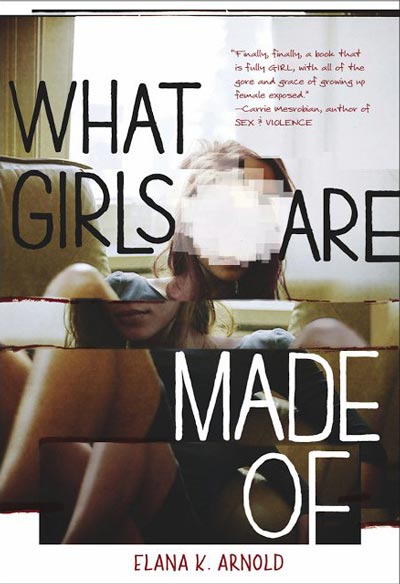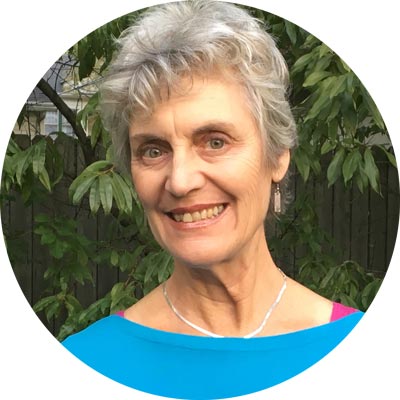By its name, What Girls Are Made Of (Carolrhoda Lab 2017) by Elana K. Arnold might be a women’s health book like Our Body, Ourselves. But it’s a novel. However, it could serve as a woman’s health guide. In no-nonsense prose we watch Nina with her first period, first gynecological exam, intercourse, abortion, and heartbreak.
What makes this book important? It’s a story about the erasure of women.
Nina watches her mother endure yearly miscarriages, marking each when her glass of vodka reappears on the dining table. Her mother says there’s no such thing as unconditional love—not even for mother and child. Mother is a beautiful rich iceberg, and a non-working art historian. Her father supplies his family with a luxurious (cold) house and all the trimmings. That’s his role.
Nina, 16 years old, knows that her boyfriend Seth’s love is conditional. Those conditions include: she may not call him (he’s rude) and they must have sex. Nina and her best friend have been in love with Seth since fourth grade, but Nina won him and dropped her friend to be with him.
Seth calls the shots—what they’ll do, where they’ll do it, and the music they’ll listen to. The reader knows that Seth is a jerk and Nina has a self-esteem issue.

Is the issue Nina’s background? Her not being unconditionally loved? But there are plenty of teenaged girls who are unconditionally loved by a parent, and yet their major job is pleasing boys. After all these years, how can this be true?
The very fact that this title has been short-listed for the National Book Award says this is an important work—a necessary read.
Before high school, when her parents attempted to break-up, her mother took Nina to Italy—a trip meant for the parents. Mother and daughter visited endless museums in Rome, Florence, and small villages. They viewed thousands of tortured virgin saints—her mother’s specialty. Nina sees paintings of women on the rack and suffering the pear. (Read the book). Nina sees sculpted virgins in a state of ecstasy visited by Angels.
Her mother says. “When people don’t have words to describe what they’re experiencing, they think it’s magic. Or mystical. Or God.” She explains, in this case, “It’s an orgasm.”
All of the Renaissance and medieval art is executed by men, of course.
- author: Elana K. Arnold
- binding: Hardcover, 208 pages
- publisher: Carolrhoda Lab TM (April 1, 2017)
- ISBN-13: 978-1512410242
It would be difficult for me to like Nina if it weren’t for her wildly imagined—though dark—stories. In one, a bird-girl lived in a nest. She “pulled a feather from her side . . .dipped its quill end in ink, and . . . began to write.” This marks the beginning of Nina’s path to empowerment.
It helps that Nina works in a dog rescue center, doing service that was once penance for a cruel school misdeed that we don’t discover until the end of the story. But that is depressing, too, as it is a high-kill shelter. A lot of realism here.
Give this book to the girl who needs to be empowered. Is that all girls?




